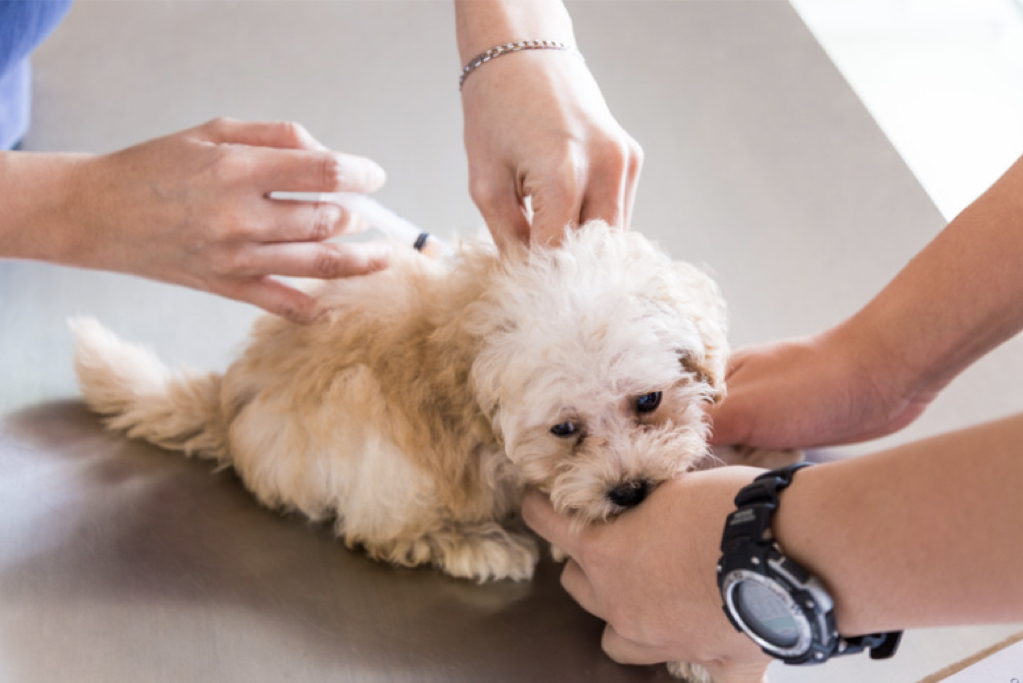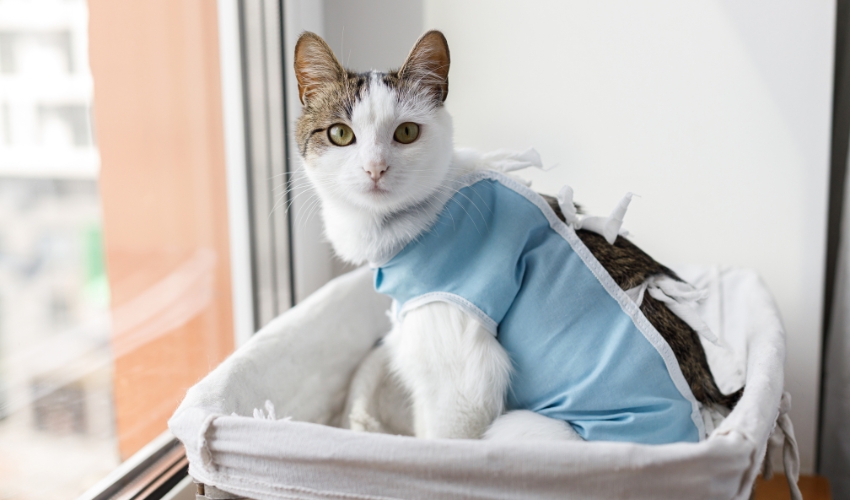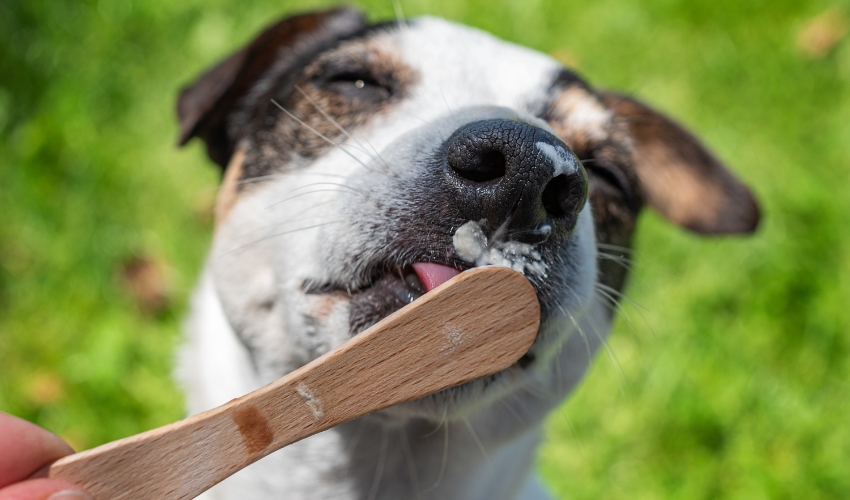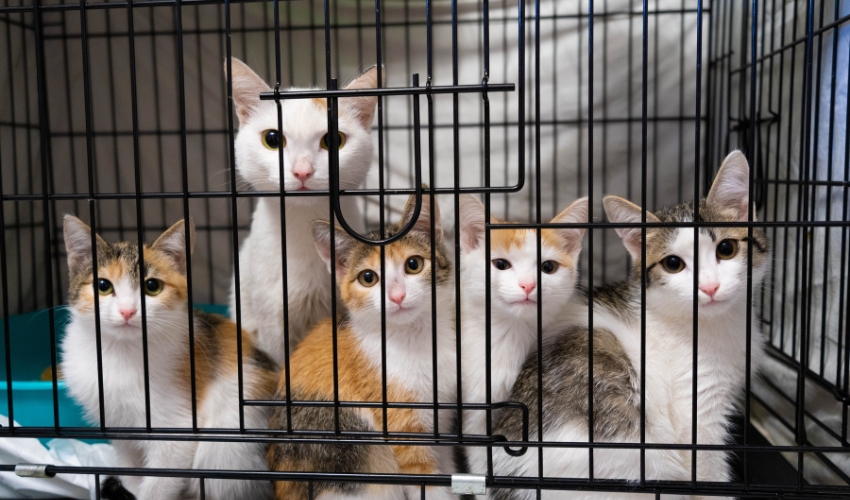Parvo is a viral disease that affects dogs, cats, and other domesticated animals. It is caused by the canine parvovirus, a highly contagious virus transmitted through direct contact with infected feces or contaminated environments such as kennels and shelters. Unfortunately, there is no cure yet for this virus, but several treatment options are available to help manage the disease and help your dog recover. As such, veterinarians highly recommend that all dogs be vaccinated against parvo to protect their health against this potentially deadly disease. This post will discuss everything you need about the dog parvo vaccine.
The DHPP Vaccine and How It Helps Against Parvo
Vaccines help protect your pet from dangerous diseases that it may be exposed to. There are many different vaccines available for many different conditions. Among these vaccines, the American Animal Hospital Association’s Canine Task Force identified five core vaccines that all dogs should receive regularly. These are distemper, hepatitis, rabies, leptospirosis, and parvovirus. Most of these vaccines are administered as combination vaccines; that is, the vaccines contain multiple antigens to protect your pet from multiple diseases. One is the DHPP vaccine, which stands for Distemper, Hepatitis, Parainfluenza, Parvo). It is also referred to as a 5-in-1 vaccine as it also protects dogs against canine adenovirus-2, which is associated with kennel cough. For this article, we will also refer to this vaccine as the “parvo vaccine,” for simplicity’s sake.
The dog parvo vaccine is a relatively safe vaccine with few side effects. It contains a weakened form of the virus to help stimulate your dog’s immune system without causing a full-blown infection. Once the vaccine is administered, the immune response protects against future virus exposure. Most dogs develop immunity within two weeks after vaccination and will continue to protect for at least six months. Some dogs may require additional booster vaccinations to maintain their immunity. It is vital to get these vaccinations at your veterinary clinic to ensure your dog receives the correct dosage and the right number of doses necessary to protect them against parvo.
Vaccine Schedule
According to the vaccination guidelines published by the American Animal Hospital Association, puppies should receive their first dose of the dog parvo vaccine at 6 weeks of age. Succeeding doses should be given every 2 to 4 weeks until they are 14 to 16 weeks of age. For those in high-risk environments, such as kennels or shelters, additional doses may be administered when the puppies are 18 to 20 weeks of age.
After the first series of vaccinations, dogs should receive a booster vaccine after 1 year. Following the booster, dogs must be re-vaccinated only every 3 years to ensure they remain protected against this disease.
Moreover, adult dogs of unknown vaccine status should receive 2 doses of dog parvo vaccine, administered 2 to 4 weeks apart.
Potential Side Effects
As with other vaccines, the dog parvo vaccine may also cause mild effects within 1 to 2 days after the vaccination. These side effects include loss of appetite, diarrhea, lethargy, and pain at the injection site. Vomiting and diarrhea may occur, but rarely. If these side effects persist for more than 2 days or become severe, contact your veterinarian immediately.
Additionally, seek veterinary care if your pet exhibits hives, difficulty breathing, persistent vomiting, fainting, or a seizure.
Cost
The cost of a dog parvo vaccine generally ranges from $40 to $100. It varies depending on several factors, such as the brand of vaccine and where you live. Since it provides protection for other diseases as well, it sure is already less expensive than having separate vaccines for each disease.
Moreover, take advantage of your pet insurance to help cover the cost of your dog’s vaccination. Most pet insurance companies will cover this annual vaccine cost as part of a comprehensive coverage plan.
Pet organizations may also offer discounts or coupons that can help you save money on the cost of a vaccine.
Effectiveness of the vaccine

The dog parvo vaccine is highly effective in preventing the spread of parvovirus. Studies say that after a dog gets a vaccine against parvo, there will be less likelihood of contracting by as much as 90%.
The vaccine provides protection for only 3 to 4 years, which is why regular vaccination is still necessary throughout the dog’s life.
Can your dog still get parvo if vaccinated?
Although the dog parvo vaccine effectively protects the dog from the harmful effects of parvovirus, there is still a chance for your dog to get the virus. This is because of your dog’s possible exposure to the virus even if he has a vaccine. This is especially true when dogs are in close contact with unvaccinated dogs.
Regardless, the risk of your dog catching a parvovirus decreases significantly after he his vaccination. So you can still rest assured that you have protected your dog from this disease as long as he receives his regular booster shots every year.











